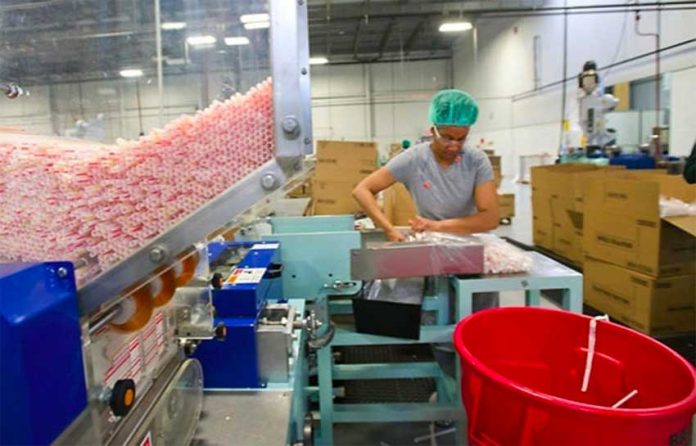Mexico is an unexpected winner in the trade war between the United States and China: several Chinese manufacturers have relocated to the country and Mexican exports to the U.S. surged in 2018.
After United States President Donald Trump imposed tariffs on US $250 billion worth of Chinese imports, companies from the world’s largest exporting nation started looking for alternatives that would allow them to sidestep the protectionist lurch.
One such company was Fuling Global Inc., a manufacturer based in the city of Wenling that built itself into a lucrative business by making paper cups and straws for restaurants in the United States.
To avoid Trump’s tariffs on paper products, the company is opening a US $4-million factory in the northern city of Monterrey, Nuevo León, and will soon begin sending millions of paper straws across the border.
“We had to look for other ways to do business,” said Fuling chief financial officer Gilbert Lee.
Not only will the company’s products enter the United States tariff-free but it will also significantly reduce its shipping costs, offsetting higher labor costs in Mexico compared to China.
“Mexico is a very logical and advantageous location for us,” Lee said.
The tariffs on Chinese exports to the United States also helped Mexico to make big gains last year in shipments to the U.S. of a variety of locally-made products.
Exports of Mexican-made vehicles, leather goods, aluminum products, fertilizer, knitted fabrics, hats, ores and iron and steel products to the United States all increased last year compared to 2017, while exports of the same Chinese-made products that were hit by the U.S. tariffs declined.
That helped Mexico to increase its total exports to its northern neighbor by 10.3% in 2018 to just over US $346.5 billion.
Mexico’s trade surplus with the United States increased at an even greater rate of 15% to hit a record high of more than US $81.5 billion.
Meanwhile, Chinese exports to the United States slowed by around a third.
News agency Bloomberg said that “Mexico’s bonanza underscores the difficulty in trying to win a trade war where companies can shift production or find new sources to avoid tariffs.”
Alan Russell, CEO of Tecma Group, a Texas firm that helps companies to open and run factories in Mexico, said that in his 35 years in the industry relocation interest from Chinese manufacturers has never been higher.
“Any company manufacturing in China has had a wake-up call,” he said, while describing that effect of Trump’s tariffs as “a case of unintended consequences.”
The tariffs on Chinese imports have also caused United States companies such as Taskmaster Components to look to Mexico to cut costs.
For almost 20 years, the company has imported large wheels and tires from China and assembled them for RV and trailer manufacturers.
But Taskmaster Components now wants to invest in a factory in Mexico in order to take advantage of the country’s proximity to the United States and access to ports and an educated workforce.
“A lot of people are moving production down there,” said Amanda Walker, the company’s chief operating officer. “Everything about Mexico is attractive.”
Source: Bloomberg (sp)
